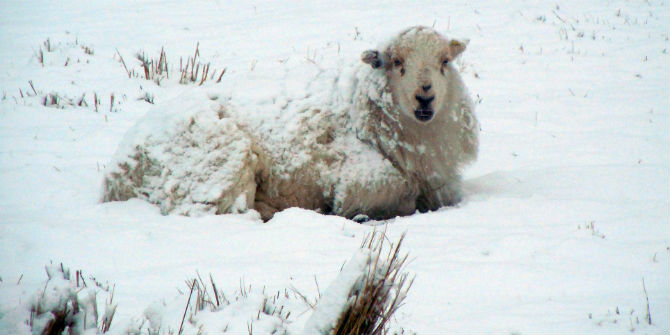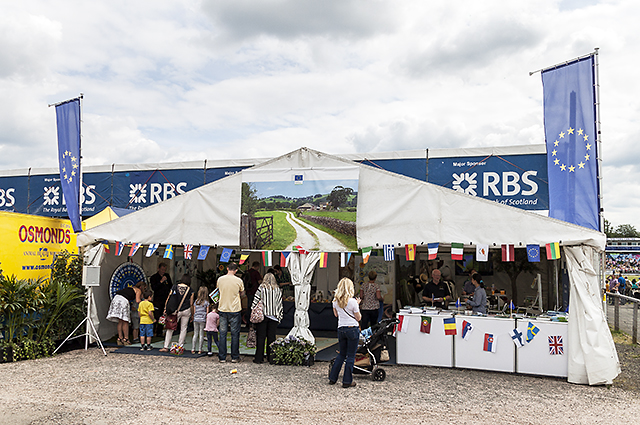
What lessons does New Zealand provide for Brexit Britain? Hamish McDougall (LSE) argues that while parallels between New Zealand and Britain in the event of no-deal Brexit are tenuous, New Zealand’s approach to free trade remains a relevant historical case study.
Insights into a no-deal Brexit can be found, of all places, in 1970s New Zealand, according to a recent Bloomberg news article. This follows a similar suggestion by Bank of England Governor Mark Carney that New Zealand may be a relevant historical case study for a hard Brexit.
The idea is that New Zealand, long dependent on agricultural exports to Britain (especially dairy and lamb), faced a massive economic, political and cultural ‘shock’ when the UK joined the European Economic Community (EEC) in 1973. According to such arguments, the sudden exclusion of New Zealand’s key exports from the EEC inflicted 20 years of pain on the South Pacific nation.
Some Remainers or soft Brexit advocates see this as a salutary lesson for the current UK government, which risks crashing out of the EU with no deal on 31 October. For some Brexit proponents New Zealand, a loyal ally and former colony, was among those ‘betrayed’ by Britain’s turn to Europe in 1973. Others point to New Zealand as an example of a nation successfully ‘going it alone’ on the global stage, overcoming initial hardship to build trade links with fast-growing economies in Asia-Pacific, rather than stagnating ones in Europe. But are these impressions of New Zealand’s response to European integration accurate? An examination of history suggests not.
There is no doubt the New Zealand economy suffered during the 1970s, but European integration was not the key factor. The OPEC oil shocks of 1973 and 1979, monetary crises, rampant inflation and isolationism and trade protection emanating from Washington, Tokyo and elsewhere were arguably more detrimental to New Zealand than enlargement of the EEC. Nor was New Zealand’s need to diversify its export base away from Britain a penny dropping in 1961 or 1973. As early as the 1930s the New Zealand government began the hard slog to find new export markets around the world, as economic historians such as Jim McAloon have shown.
An obvious point, albeit one missed by many commentators, is that Britain’s entry to the EEC in 1973 was not a great shock to New Zealand. Britain first applied to join the EEC in 1961 and the full effects of entry were not felt by third countries until the end of the transition period in 1977. Even the vetoes by French President Charles de Gaulle in 1963 and 1967 could not dissuade most that British accession would happen eventually, providing more than 15 years of adjustment to the idea of the United Kingdom in an enlarged Common Market.
Throughout this period the New Zealand government publicly backed the idea of British membership of the EEC, providing New Zealand’s ‘vital interests’ could be secured in the process. This security came in the form of a special arrangement for New Zealand dairy exports to Britain. It was included as a clause in the Accession Treaty and negotiated with the Six existing EEC members by Britain on New Zealand’s behalf in Luxembourg in June 1971.
Although negotiations were tense and compromises were required on all sides (largely because of French opposition,) it was not a bad deal from New Zealand’s point of view. It allowed over 70% of New Zealand’s dairy exports to remain in the British market by the end of the five-year transition period in 1977, with provisional undertakings to review and extend the arrangement in future. The EEC also pledged to stop ‘dumping’ its excess dairy products into third markets.
New Zealand’s lucrative lamb exports to Britain were not greatly impeded by British entry in 1973. Behind-the-scenes lobbying and separate agreements secured in previous GATT negotiations meant sheepmeat was not yet subject to the EEC’s Common Agricultural Policy (although it was subject to a 20% Common External Tariff). In 1971 it was the British Government which applied a 20% tariff on New Zealand lamb to satisfy the domestic farm lobby, a decision made irrespective of British accession to the Common Market.

New Zealand products previously destined for Britain were slowly finding their way elsewhere in the 1960s and 1970s, but not necessarily because of EEC enlargement. Britain’s protectionism, diminished buying power and reduced manufacturing capacity all played a part, as did the opening of China and closer economic relations between New Zealand and Australia.
Nevertheless, the UK government did not betray New Zealand in 1973. Its considerable efforts to secure satisfactory access for New Zealand dairy cost it political capital among its future EEC partners and required financial concessions in other areas, including the UK’s contribution to the Community budget during the transition.
This effort on New Zealand’s behalf was not altogether altruistic. In the early 1970s, the Edward Heath-led Conservative Government was terrified that an alliance of Labour frontbenchers and Eurosceptic Conservative backbenchers would seize on New Zealand as a cause célèbre, introducing unpalatable legislative amendments and causing Heath’s European accession bill to fall in the House of Commons. Because of this, Heath and other senior Tory ministers went to considerable lengths to ensure the New Zealand government was happy with the terms of the Accession Treaty. As lead official Sir Con O’Neill put it, this gave the New Zealanders an effective ‘veto’ on British entry.
The special arrangement for New Zealand dairy was further enhanced by the Harold Wilson-led Labour government’s renegotiation in 1975 and eventual accords were agreed with Brussels for sheepmeat, horticulture, dairy and other New Zealand products in the 1980s and 1990s. This kept Britain and the European Union among New Zealand’s top four trade partners into the Twenty-First Century.
Considerable political, diplomatic, economic and cultural links between New Zealand, Britain and Europe remain to this day. New Zealand is currently negotiating a Free Trade Agreement with the EU and is on a priority list of countries to do the same with Britain (presuming the UK has an independent trade policy, post-Brexit).
Importantly, the New Zealand strategy in the second half of the Twentieth Century was not to dismantle its existing trade with Britain and Europe in favour of markets elsewhere. Rather, it wanted to retain as much of its traditional agricultural trade with Britain as possible and use these lucrative export receipts to restructure and re-orientate the economy, including expanding new markets in Asia, the Middle East, Australia and USA.
New Zealand’s continued trade with Europe was not incompatible with trade elsewhere, in theory, or practice. Nor has New Zealand stopped advocating for freer world trade within a multilateral, rules-based system. With some hiccups, New Zealand’s strategy has largely proved successful. Modern-day UK politicians could do worse than take note.
So the parallels between New Zealand and Britain in the event of no deal Brexit are tenuous. If there are comparisons to be made, it may be between 1970s New Zealand and current day Ireland: a relatively small former British colony, reliant on trade with Britain but diversifying its markets and keen to express its own national independence, is having a disproportionate influence on the future of European integration. Like New Zealand in the 1970s, Ireland’s influence derives from its deft and dogged negotiating strategy, its international networks, and also from a peculiar set of political circumstances in Westminster. There was no great shock or betrayal for New Zealand in 1973. It remains to be seen if the same can be said of the United Kingdom in 2019.
This post represents the views of the author and not those of the Brexit blog, nor the LSE. Image C00 Public Domain.
Hamish McDougall is undertaking a PhD in the International History Department at LSE. His research topic is Britain’s entry to the European Communities and its relationship with New Zealand in the 1970s.






